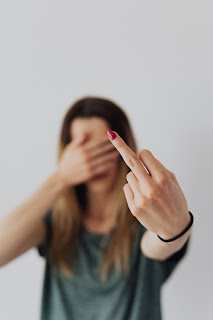I'm reminded of this again reading Heather Mallick in the Toronto Star. She wrote an opinion piece on incels and the culture of women hating and somehow still managed to introduce the dog whistles of transphobia with claims about womanhood being erased through trans inclusion. The Star has a couple of columnists, the other being Rosie DiManno, that write in these dog whistles regularly, often while defending UK transphobes, all the while trying to gaslight us with their "we're not transphobic, but" claims.
These two writers are great examples of why marginalized women so often distrust White feminists: they seek to control the defininition of who is a woman, and thus worthy of support, and who is not a woman and thus can be discarded. We have seen this before, in the past, when White women happily threw BIPOC women under the bus to preserve their place and secure rights for themselves that other women were denied. Now these very similar women are doing that with trans women (and likely other women that they find "objectionable" even if they don't say it out loud). Why?
This is about preserving their position in the patriarchy and distinctly not about dismantling the system that is harming us all. For them, rights are a pie and if they share it then they're not getting as much as they used to. What rights were they used to? Well, I suppose the right to be able to spit on those they deem not legitimate or worthy of inclusion and safety.
So, if you wondering, White Feminism is indeed alive and well.

Comments
Post a Comment